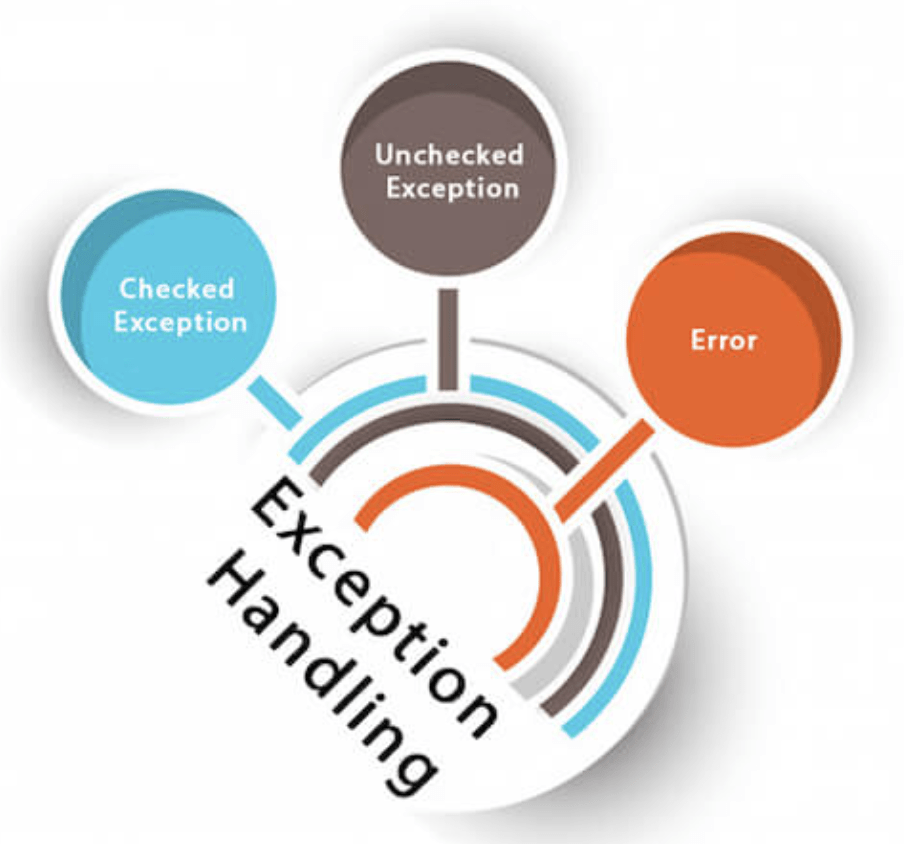Exception handling is a mechanism in computer programming that allows the program to handle runtime errors that may occur in the course of its execution. This is done by identifying and catching exceptions, which are unexpected events or errors that may occur during the execution of a program. When an exception occurs, the program can either handle it by providing a specific response or it can ignore it and continue executing. Exception handling is a key feature of modern programming languages and is used to prevent the program from crashing or entering an undefined state when an error occurs. It allows the program to continue running and provide a useful output, even in the face of errors.
The syntax for exception handling in Python is as follows:
try: # Code that may throw an exception except ExceptionType: # Code that will handle the exception else: # Code that will be executed if no exceptions are thrown finally: # Code that will always be executed
In this syntax, the try block contains the code that may throw an exception, while the except block contains the code that will handle the exception. The exception type specified in the except block is the type of exception that will be caught and handled. If no exceptions are thrown in the try block, the code in the else block will be executed. The finally block contains code that will always be executed, regardless of whether or not an exception is thrown.
Python Exception Handling
In Python, exception handling is done using try and except statements. The try block contains the code that may throw an exception, while the except block contains the code that will handle the exception. If an exception occurs in the try block, the code in the except block will be executed. Here is an example of how exception handling works in Python:
try:
# Code that may throw an exception
x = 1 / 0
except ZeroDivisionError:
# Code that will handle the exception
print("You cannot divide by zero!")
In this example, the try block contains code that attempts to divide a number by zero, which will throw a ZeroDivisionError. The except block catches this error and prints a message to the user.
In addition to try and except, Python also provides the else and finally statements for use in exception handling. The else block is executed when no exceptions are thrown in the try block. The finally block is always executed, whether or not an exception is thrown in the try block. Here is an example that shows how these statements can be used together:
try:
# Code that may throw an exception
x = 1 / 0
except ZeroDivisionError:
# Code that will handle the exception
print("You cannot divide by zero!")
else:
# Code that will be executed if no exceptions are thrown
print("The result is:", x)
finally:
# Code that will always be executed
print("This code will always be executed")
In this example, the else block is not executed because an exception is thrown in the try block. However, the finally block is always executed, regardless of whether or not an exception is thrown.
Exception handling is an important concept in Python, and it is used to prevent errors and crashes in Python programs. By using try, except, else, and finally statements, you can write code that is able to gracefully handle runtime errors and continue running, even in the face of unexpected events.
when and why use exception handling:
Exception handling is used to prevent runtime errors and crashes in a program. It is an important tool for writing robust and reliable code.
Exception handling is typically used in the following situations:
- When you want to handle runtime errors that may occur in the course of a program’s execution. For example, if you are writing a program that reads data from a file, you may want to handle the case where the file does not exist or cannot be opened.
- When you want to provide a specific response to an error or exception that may occur. For example, if you are writing a program that divides two numbers, you may want to handle the case where the user tries to divide by zero, which would otherwise cause the program to crash.
- When you want to ensure that certain code is always executed, regardless of whether or not an exception occurs. For example, you may want to close a file or release a resource that you have acquired earlier in the program, even if an exception is thrown.
In general, exception handling is used to prevent errors and crashes in a program, and to provide a specific response to exceptional situations that may occur. It is an important tool for writing reliable and robust code that is able to handle runtime errors and continue running.

